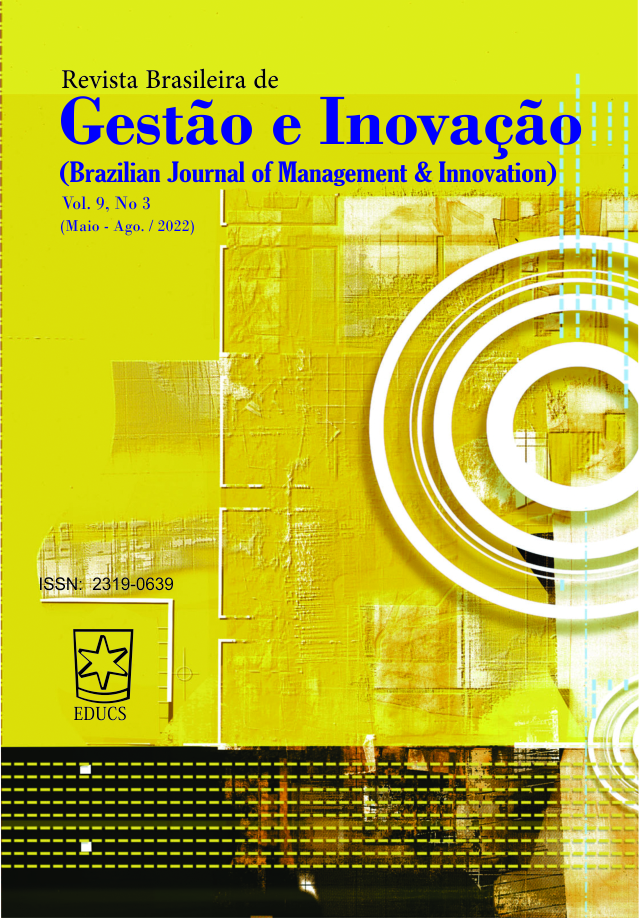INNOVATION MANAGEMENT AND CULTURAL TRANSFORMATION: CASE OF INDUCTIVE INITIATIVES IN BRAZILIAN SUPPORT FOUNDATION
DOI:
https://doi.org/10.18226/23190639.v9n3.03Keywords:
Gestão da Inovação, Gestão 3.0, Transformação Cultural, FIESAbstract
Innovations in organizations have a growing demand every year, which raises the management and encourages the process for their generation in a systematic and engaged manner. In this context, innovation appears as an organizational function in companies, which requires management of practices with ambidexterity. From this perspective, the objective of this article is to discuss the perception of employees of a Foundation for Support to Higher Education Institutions (FSHEI), with regard to initiatives to induce innovation through an institutional program of cultural transformation. We opted for a descriptive qualitative approach, integrated case study strategy. We sought to triangulate and validate data collected from different sources, related to the perception of employees; innovation acceleration agents; results of employees in the gamification of the institutional program; and internal documents on the intranet. It was possible to identify aspects related to the engagement and development of the participants; the difficulty of making work routine compatible with innovation initiatives; variations related to employee involvement and leadership support; perceptions of the importance of the program for personal and professional development; and evidence of cultural transformation towards more innovations. The results bring contributions to broaden the discussion on the innovation function, Management 3.0, the role of leaders, practices of transformation for a culture of innovation and its challenges.
Downloads
Published
How to Cite
Issue
Section
License
Copyright (c) 2022 Brazilian Journal of Management & Innovation

This work is licensed under a Creative Commons Attribution 4.0 International License.
The author must guarantee that:
- there is full consensus among all the coauthors in approving the final version of the document and its submission for publication.
- the work is original, and when the work and/or words from other people were used, they were properly acknowledged.
Plagiarism in all of its forms constitutes an unethical publication behavior and is unacceptable. Revista Brasileira de Gestão e Inovação has the right to use software or any other method of plagiarism detection.
All manuscripts submitted to RBGI - Revista Brasileira de Gestão e Inovação go through plagiarism and self-plagiarism identification. Plagiarism identified during the evaluation process will result in the filing of the submission. In case plagiarism is identified in a manuscript published in the journal, the Editor-in-Chief will conduct a preliminary investigation and, if necessary, will make a retraction.
This journal, following the recommendations of the Open Source movement, provides full open access to its content. By doing this, the authors keep all of their rights allowing Revista Brasileira de Gestão e Inovação to publish and make its articles available to the whole community.
RBGI - Revista Brasileira de Gestão e Inovação content is licensed under a Creative Commons Attribution 4.0 International License.
Any user has the right to:
- Share - copy, download, print or redistribute the material in any medium or format, linking to RBGI site.
- Adapt - remix, transform and build upon the material for any purpose, even commercially.
According to the following terms:
- Attribution - You must give appropriate credit, provide a link to the license, and indicate if changes were made. You may do so in any reasonable manner, but not in any way that suggests the licensor endorses you or your use.
- No additional restrictions - You may not apply legal terms or technological measures that legally restrict others from doing anything that the license permits.
#RBGI







